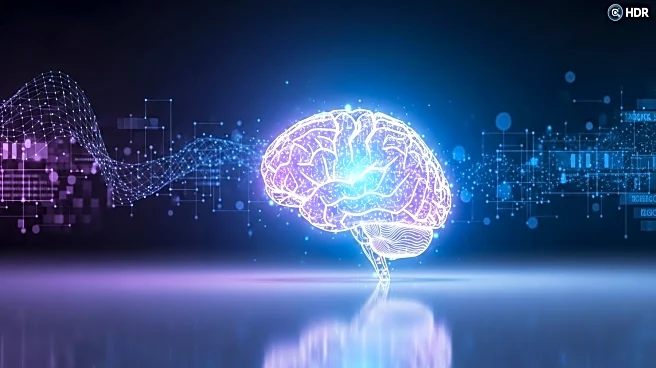What's Happening?
Roger Rohatgi, Chief AI Officer at Chai, is emphasizing the importance of human-centered AI in shaping future digital experiences. As a juror in the Digital Experience category at The Drum Awards Festival, Rohatgi discusses how AI will evolve to create more personal and immersive interactions beyond current device-driven methods. He highlights the need for brands to balance creativity with functionality, ensuring seamless user experiences. Rohatgi advocates for AI as a connective tissue that integrates platforms in real-time, adapting to user behavior and location to create omni-channel experiences. He also stresses the importance of research and UX teams in maintaining human-centered design, warning against the risk of advanced systems failing to meet real needs without proper human insight.
Why It's Important?
The integration of human-centered AI into digital experiences has significant implications for industries reliant on technology and customer interaction. By focusing on seamless and personalized experiences, companies can enhance user satisfaction and engagement, potentially leading to increased brand loyalty and market competitiveness. Rohatgi's insights suggest that businesses investing in AI and UX research will be better positioned to innovate empathetically, meeting consumer needs effectively. This approach could redefine industry standards, pushing companies to prioritize user experience over mere technological advancement, thereby amplifying human potential and driving forward business growth.
What's Next?
As AI continues to evolve, companies are expected to increasingly adopt conversational AI platforms like voice assistants and chat systems, which Rohatgi identifies as high-demand areas. These platforms promise hyper-personalized, real-time interactions, setting the stage for future digital leaders who can marry AI with human-centered design. The Drum Awards Festival, where Rohatgi serves as a juror, encourages submissions that showcase effective, innovative, and human-centered digital work, potentially influencing industry trends and standards for 2025.









